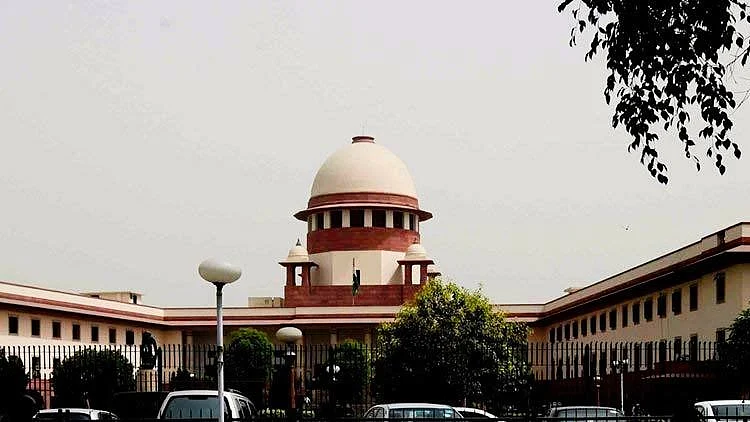Nation
Using 'miyan-tiyan, Pakistani' in remarks inappropriate, not criminal: SC
Ruling issued while quashing a case against 80-year-old Hari Nandan Singh, accused of making such remarks

The Supreme Court has clarified that the use of terms such as 'miyan-tiyan' and 'Pakistani', though considered inappropriate, does not constitute a criminal offence for hurting religious sentiments. The ruling was issued while quashing a case against 80-year-old Hari Nandan Singh, who had been accused of making such remarks.
A bench comprising Justices B.V. Nagarathna and Satish Chandra Sharma discharged Singh in a case initiated by Md Shamimuddin, an Urdu translator and acting clerk at the Right to Information (RTI) office in Chas, Jharkhand.
The court noted that while the statements made by Singh were in poor taste, they did not amount to an infringement on the complainant's religious sentiments. The justices stated, “The appellant is accused of hurting the religious feelings of the informant by calling him ‘miyan-tiyan’ and ‘Pakistani’. Undoubtedly, these statements are in poor taste; however, they do not constitute an offence.”
In its order dated 11 February, the court noted that such remarks did not satisfy the criteria outlined in section 298 of the IPC, which pertains to words or gestures made with the intent to wound religious feelings.
The case began with an FIR registered in Jharkhand’s Bokaro based on Shamimuddin's complaint, which alleged that Singh had insulted him with communal slurs and used criminal force while Shamimuddin was carrying out his official duties. This led to charges under various sections of the IPC, including 298 (hurting religious sentiments), 504 (intentional insult), 506 (criminal intimidation), 353 (assaulting a public servant), and 323 (voluntarily causing hurt).
Singh initially sought information under the RTI Act from the additional collector, but later alleged that Shamimuddin manipulated the documents sent to him. The appellate authority subsequently instructed Shamimuddin to personally deliver the information to Singh.
Published: undefined
On 18 November 2020, Shamimuddin, accompanied by a messenger from the sub-divisional office, visited Singh’s home to provide the information.
Following a police investigation, a charge sheet was filed, and in July 2021, the magistrate took cognisance of the offences and summoned Singh. Singh later filed an application for discharge, which was partly granted in March 2022, releasing him from the charge under section 323 but retaining charges under sections 298, 353, and 504. His challenges in the Bokaro additional sessions court and the Jharkhand High Court were unsuccessful, prompting him to appeal to the Supreme Court.
In its judgement, delivered on 12 February but released recently, the bench referenced its earlier decision in Sajjan Kumar vs CBI (2010), which outlines the necessary conditions for framing charges. The justices assessed the FIR and determined that the essential elements required for the alleged offences were not satisfied. They found that Singh's comments, while derogatory, did not reach the legal threshold necessary to establish an offence under section 298.
Moreover, the court acknowledged that under the Bharatiya Nyaya Sanhita (BNS) effective from July 2024, section 298 of the IPC will be replaced with section 302. The bench found insufficient evidence to support claims of criminal force against Singh or to justify charges under section 353, and rejected the applicability of section 504, concluding that Singh's actions did not provoke a breach of peace. The court stated that merely using derogatory terms does not constitute an offence unless accompanied by a direct and imminent threat to public order.
The Supreme Court set aside the high court's order, allowing Singh's appeal and exonerating him of all charges.
Published: undefined
Follow us on: Facebook, Twitter, Google News, Instagram
Join our official telegram channel (@nationalherald) and stay updated with the latest headlines
Published: undefined